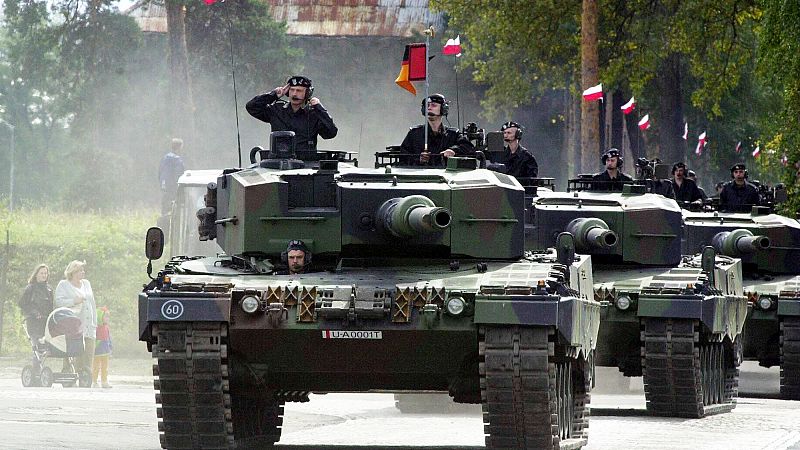Defence and security seen as top priorities for strengthening EU’s global role, survey finds

Defence and security were identified as the key priority to bolster EU global influence by most respondents (37%) to the Eurobarometer Spring Survey 2025, it was revealed on Wednesday, followed by competitiveness, the economy, and industry (32%), and energy independence, resources, and infrastructure (27%).
Defence and security ranked as the top priority in 13 of the 27 EU member states, including France, Germany and Poland. In 10 countries - including Italy and Greece - competitiveness, the economy, and industry were cited as the most relevant priorities. Meanwhile, food security and agriculture topped the list in Slovenia, Slovakia, and Romania.
Education and research topped the list as the most likely to strengthen the EU’s global role in Spain alone, while in Sweden and Malta the focus was on democracy and the protection of human rights.
The survey, conducted between 5 and 29 May 2025 across all EU member states, was based on 26,410 face-to-face video interviews, with results weighted according to each country’s population size.
When asked about the main issues the European Parliament should address, 41% of respondents named inflation, rising prices and the cost of living. This was followed by defence and security (34%) and the fight against poverty and social exclusion (31%).
The EU’s image also improved. More than half of respondents (52%) held a positive view of the Union, up two percentage points compared with the previous survey. This marks only the third time in the past two decades that a majority of Europeans have expressed a positive perception of the EU. Previous peaks were recorded in autumn 2021 (54%), during the COVID-19 vaccination campaign, and in spring 2022 (52%), immediately after the outbreak of the war in Ukraine.
Overall, 73% of respondents said their countries had benefited from EU membership. Approval levels were highest in Denmark, Ireland, and Malta, while Austria, Bulgaria and Czechia registered the lowest. The main advantages cited were peace and security (37%) and improved cooperation among European countries (36%).
A large majority of Europeans (90%) believe that EU member states should show greater unity in addressing global challenges. Moreover, 68% think the EU’s role in protecting citizens against global crises should be strengthened.
"Not only there is a call for unity from 9 out of 10 people, but also a call for more funding from 77% [of the respondents], and 78% say it would be good to carry out projects with joint financing, since this brings greater added value than financing them at national level," Delphine Colard, spokesperson for the European Parliament, told Euronews.
The survey also found that 72% of people felt EU actions have an impact on their daily lives. Half viewed this impact as positive, 31% as neutral, and 18% as negative.
Finally, optimism about the EU’s future is at its highest level since 2020–2021: 66% of respondents expressed a positive outlook. Among younger Europeans aged 15 to 24, optimism is even stronger, with 72% saying they believe things in the EU are heading in the right direction.
Today

